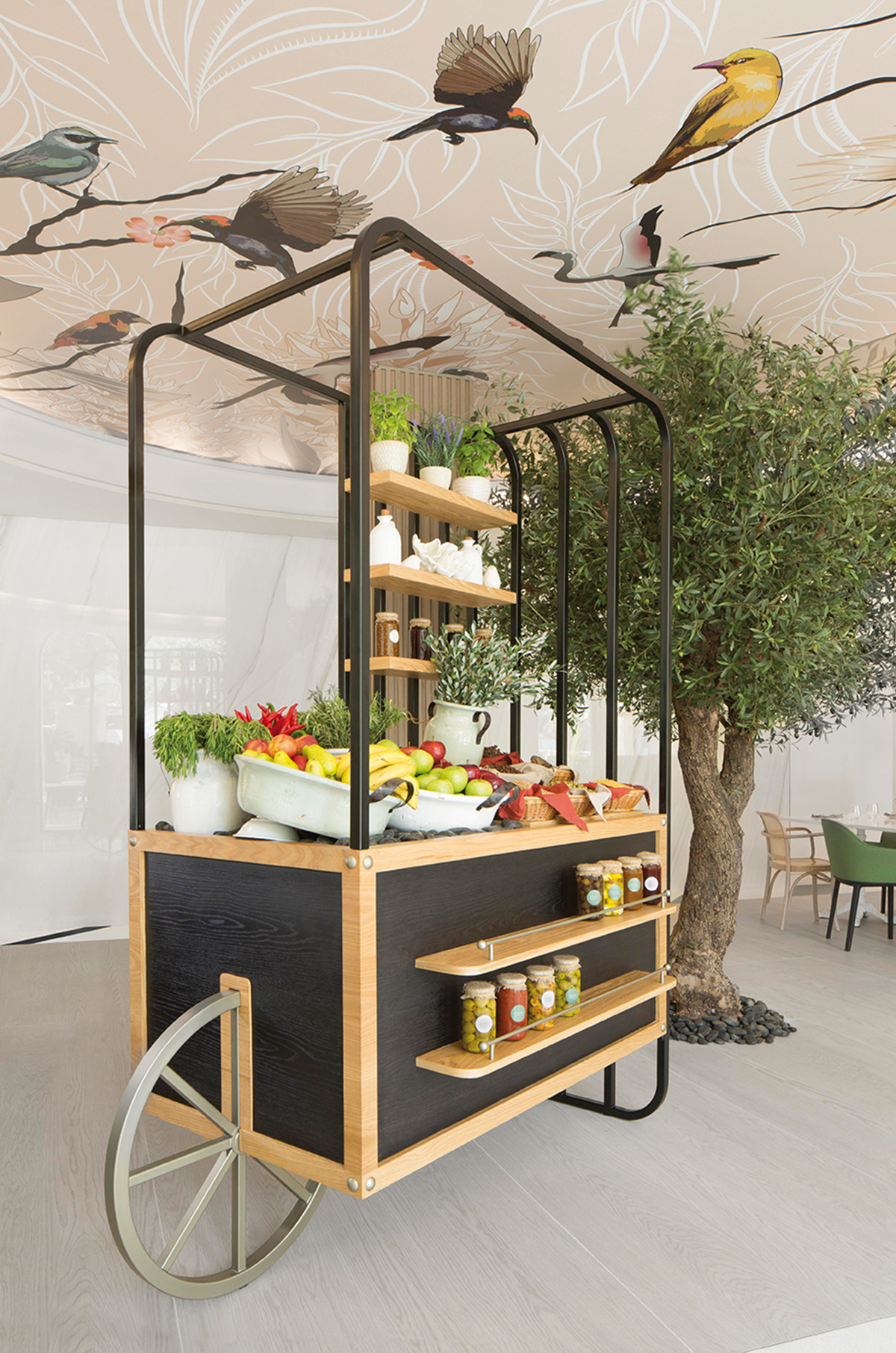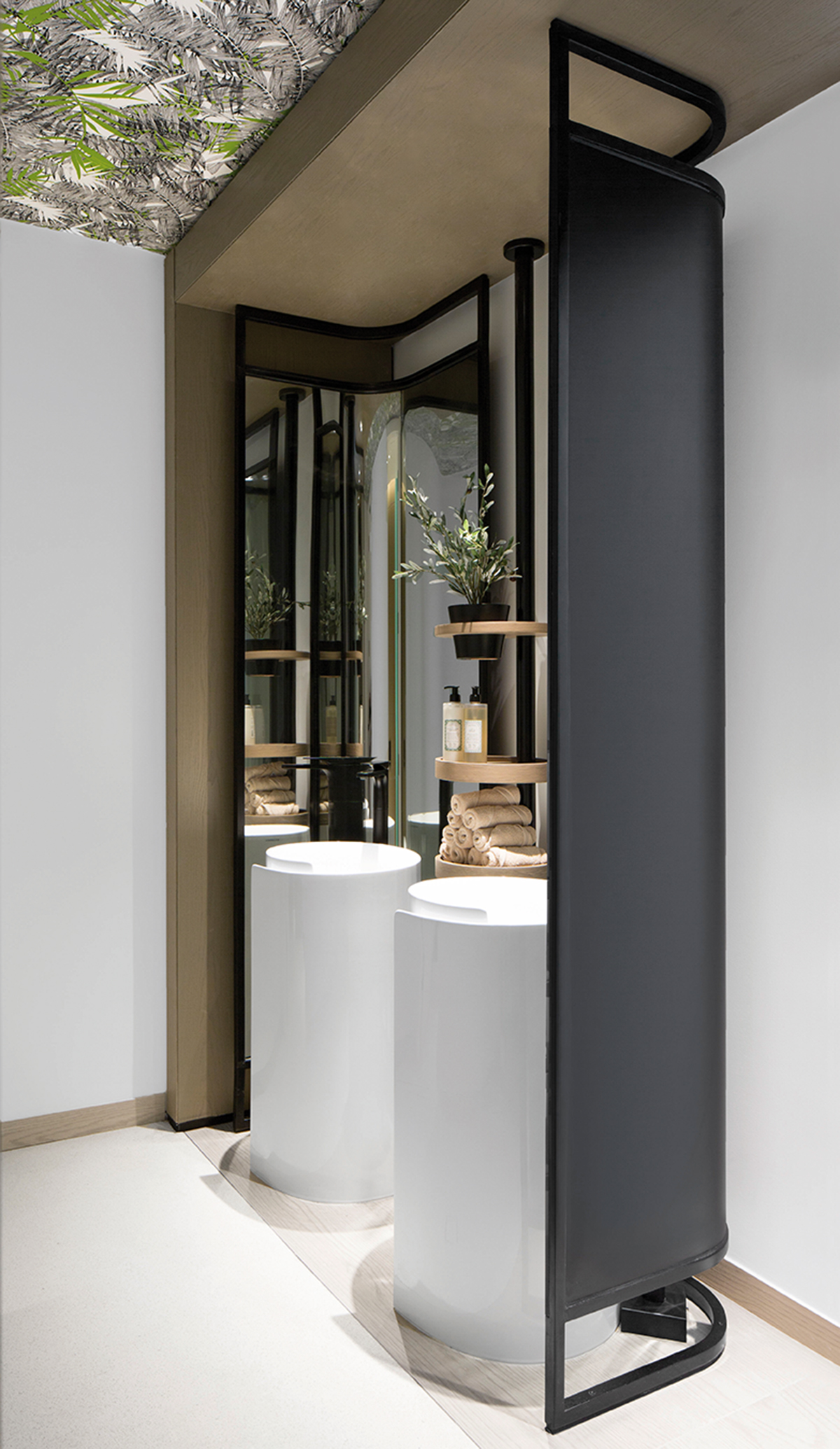Located in the city of Sharjah, on the eastern side of the Arabic gulf, Shababeek is all about fusion: the fusion of the award-winning talent of Lebanese chef Maroun Chedid and owner Her Excellency Sheikha Bodour bint Sultan bin Muhammad Al Qasimi and the fusion of Pallavi Dean Interiors’ disciplined design with the creativity of local artists and artisans, to be precise. Aesthetically, however, the restaurant is a far cry from the excess synonymous with Islam decoration, just as it is from the over-ready use of historic European styles, from Rococco to Imperial, which seem to take it in turns to populate luxurious spaces in the Arab world. No, Shababeek’s beauty lies in its ultra-décor style and its success in drawing on a range of influences to create a truly cosmopolitan setting.
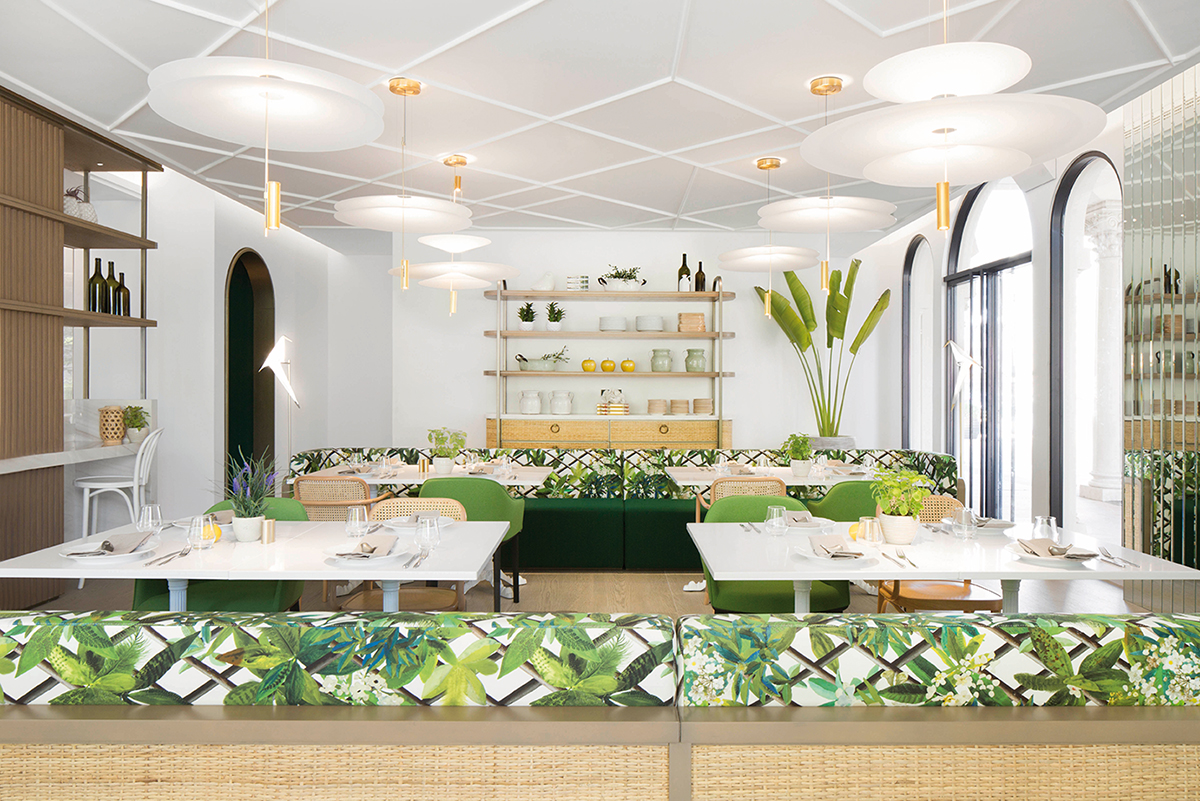
One of the most significant of these influences – culinary, in this case – is without doubt the chef’s country of origin. Born in Lebanon, Maroun Chedid’s diverse cultural background is somehow reflected in the design of this space, which revolves around the use of different lines, volumes, strokes and bold colours. Through the filter of modernity, the designers have drawn from Lebanon’s architectural history, which is known for its unusual combination of techniques and materials from both Roman and Moorish styles, while also looking to the more typically European Art Deco style, evident in the full-height window arches, the abstract, Islamic-style geometric lines found in the white plaster work, the mirrors and the curved Thonet and padded Vitra seats. The patterns on the floor are pure 1920s Paris.
These influences are perfectly complemented by the Mediterranean-style cooking, which celebrates the flora and fauna of the gulf, as well as a colour scheme rich in greens, brushed brass and neutral shades. There is also a clear focus on using natural materials.
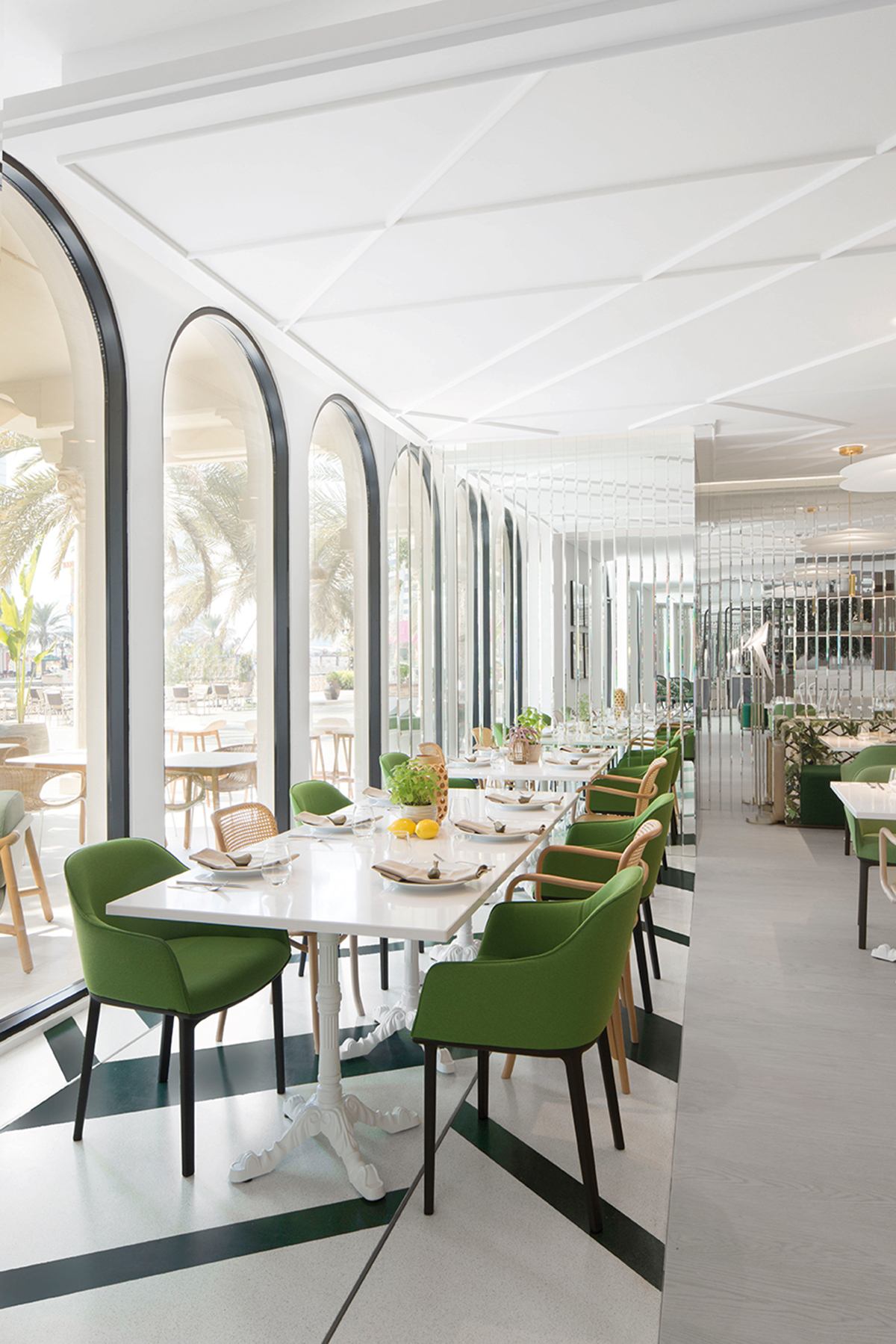
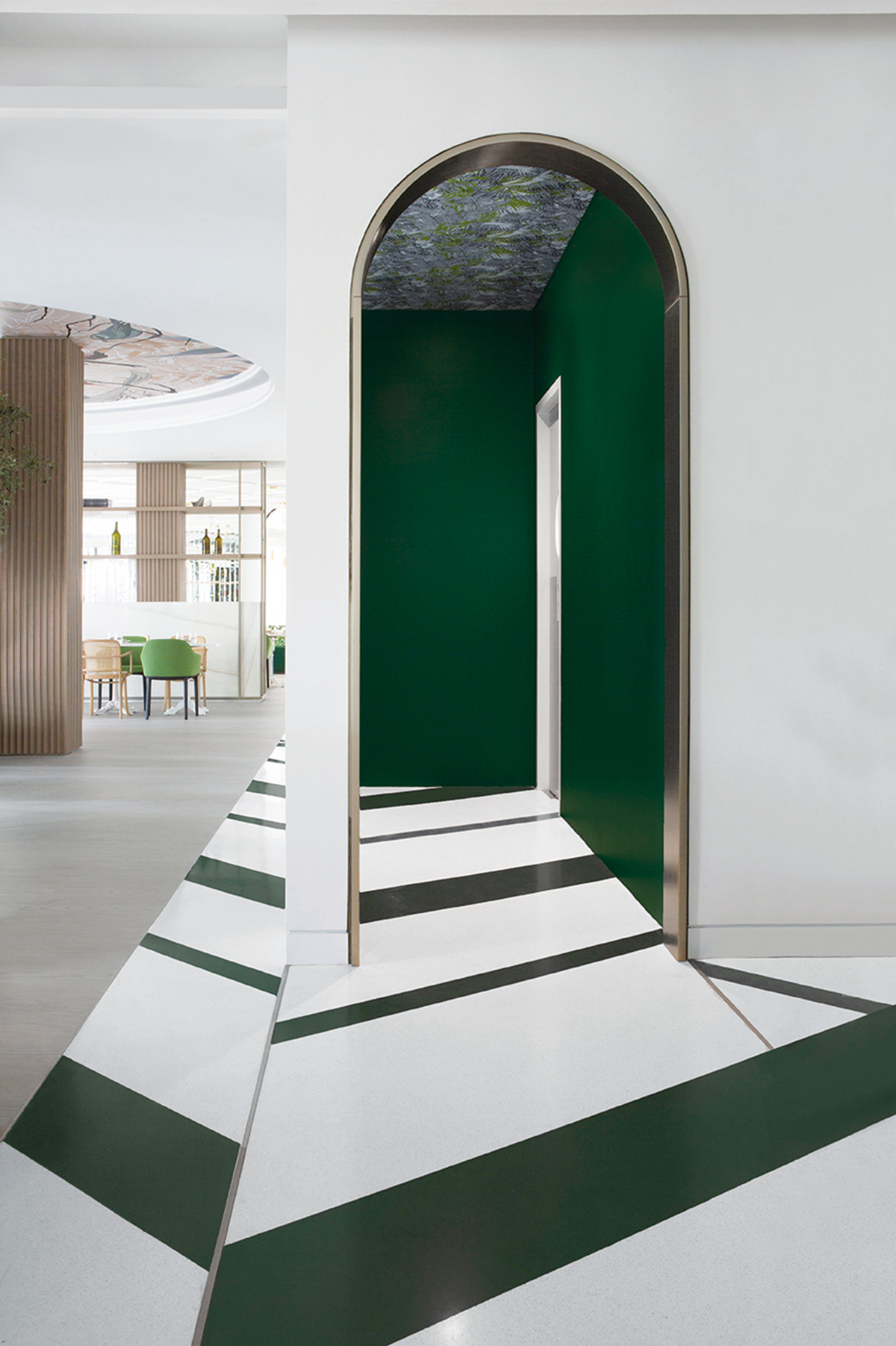
The nature theme continues with the wallpaper used to decorate part of the ceiling with images of birds, plants and trees – created by art collective The Attic – and in the fabrics used for the sofas, armchairs and cushions, adorned as they are with bold foliage patterning by local designers. This 2D representation of nature is given shape and form by the real olive tree, a nod to one of the base ingredients in Lebanese cooking, while olive-based products from Mouron’s own brand are displayed on a cart – conjuring up images of the mobile street vendors of Beirut.
Mother Nature continues to reign supreme with a selection of pieces by a number of European brands, including Flamingo lights by Vibia – which resemble abstract versions of birds in flight – and the Perch Light collection by Moooi, which again recreate the shape of winged beasts dangling from their golden fittings on the ceiling.
